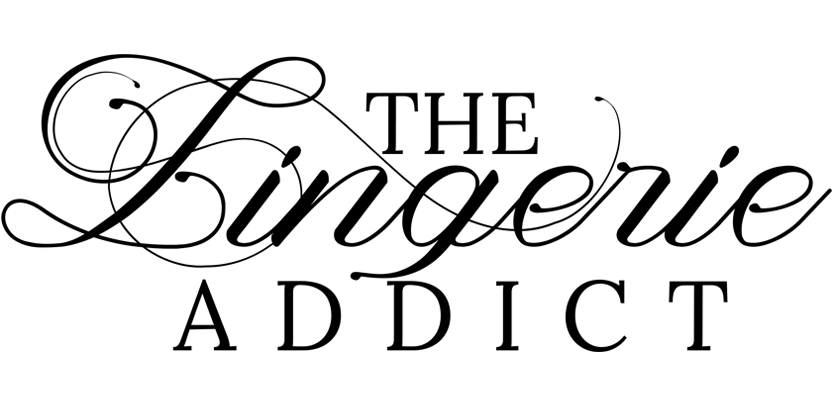How Will 'Brexit' Affect The Lingerie Industry?
If you’ve been watching the news lately, no matter where you are in the world, it’s likely that you’ll have heard about ‘Brexit’. It’s the portmanteau name given to the ‘British Exit’ from the European Union (a political union of 27 European countries comprising of common economic, foreign, security, and justice policies).
On June 23rd 2016, the population of the United Kingdom (including England, Scotland, Wales and Northern Island) had a referendum, answering the question of whether the country should ‘Remain’ or ‘Leave’ the European Union. ‘Leave’ won with a tight majority of 52%. Cutting ties with the European Union brings a lot of risk into Britain, affecting areas such as international trade relationships, prices of everyday goods and even international security.
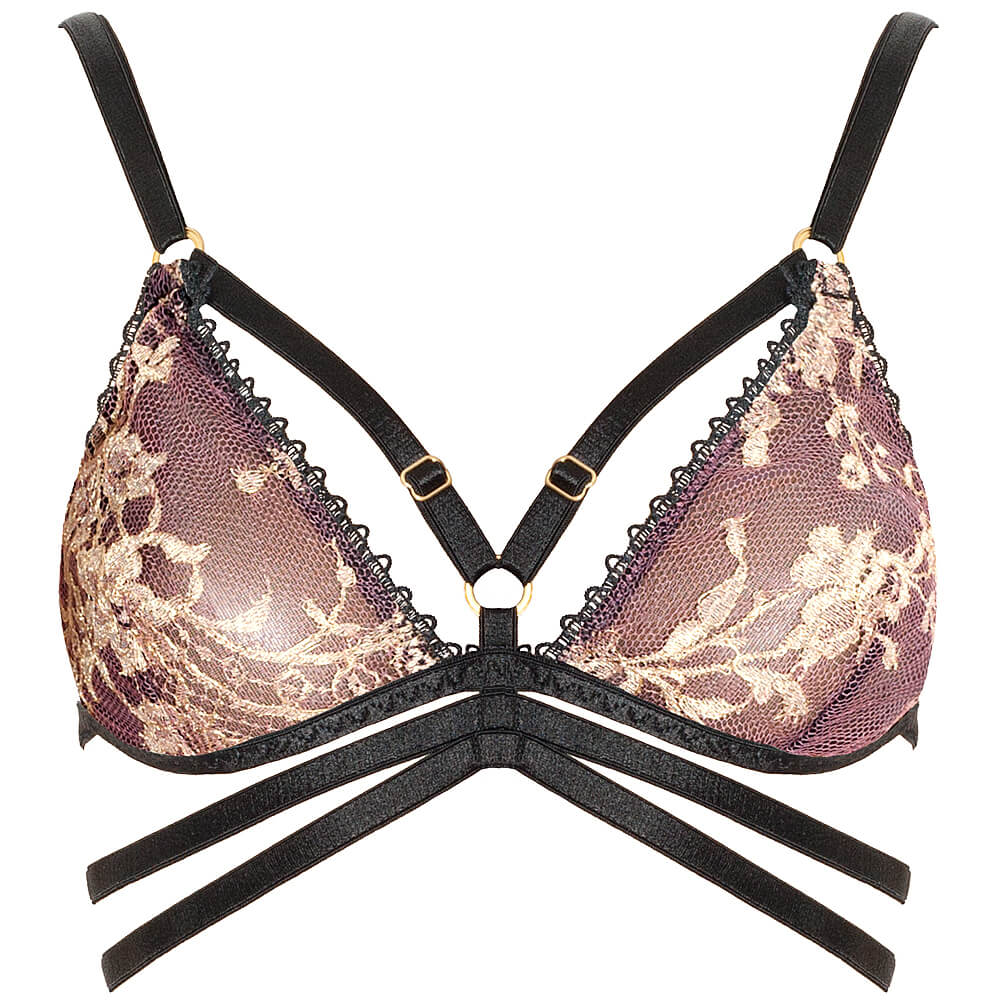
A design from my AW13 that relied strongly on the UK's relationship with the EU. The lace was made in France and the garment was sewn in Poland. Design by Karolina Laskowska
The purpose of this article isn’t to outline the political intricacies of the ‘Brexit’. I instead hope to discuss some of the economic effects of the decision and how it will specifically affect the lingerie and extended fashion industries. This will not and cannot be an objective article.
Leaving the European Union is a highly emotive topic that affects almost every aspect of British life: the cost of everyday goods will go up, scientific research will lose funding, the cost of travel and holidays will increase, and British students will lose the right to study for free in European universities (particularly relevant for young people who face hefty student debt within the UK).
I was a staunchly pro-Remain voter and have watched the referendum tear this country apart before a decision had even been made. I will not be addressing issues such as xenophobia, but instead hope to show how Brexit could affect businesses such as mine. Catherine Clavering of Kiss Me Deadly also wrote a highly poignant piece about the referendum prior to the vote, which addresses other issues such as freedom of movement, disability and health insurance.

Many British luxury lingerie brands rely on French manufacturers for their lace. A Brexit could make these beautiful fabrics prohibitively expensive for many of the independent designers. Photo by Karolina Laskowska
Both sides of the referendum campaign have agreed that a ‘Brexit’ will cause a recession. Certainly in the UK, but it won’t leave the rest of the world unaffected - just the announcement of the results had effects as far reaching as Japan. There are deep fears already that the entire world market will be affected.
Within the first 24 hours of the result announcement, the global market was wiped of $2 trillion in stocks. It was such a shock that even the USA’s Federal Reserve pledged to flood the market with new liquidity to avoid another financial crisis: something that would affect everyone.
Even if you don’t care about banking or the stock market, the fact that Wall Street saw its biggest single day fall in 10 months has very concerning implications. The fear of recession is a big one that will affect all areas of life. In the lingerie sphere, even if it doesn’t increase the prices in countries such as the USA, it may mean less disposable income for such luxuries.
The far reaching effects of Brexit will leave an indelible mark on the world’s fashion industry; particularly lingerie, where the UK has always driven many areas. Prior to the referendum, prominent figures in the fashion industry warned of its negative effects, from damage to world-renowned universities to dramatic increases in the price of clothing.
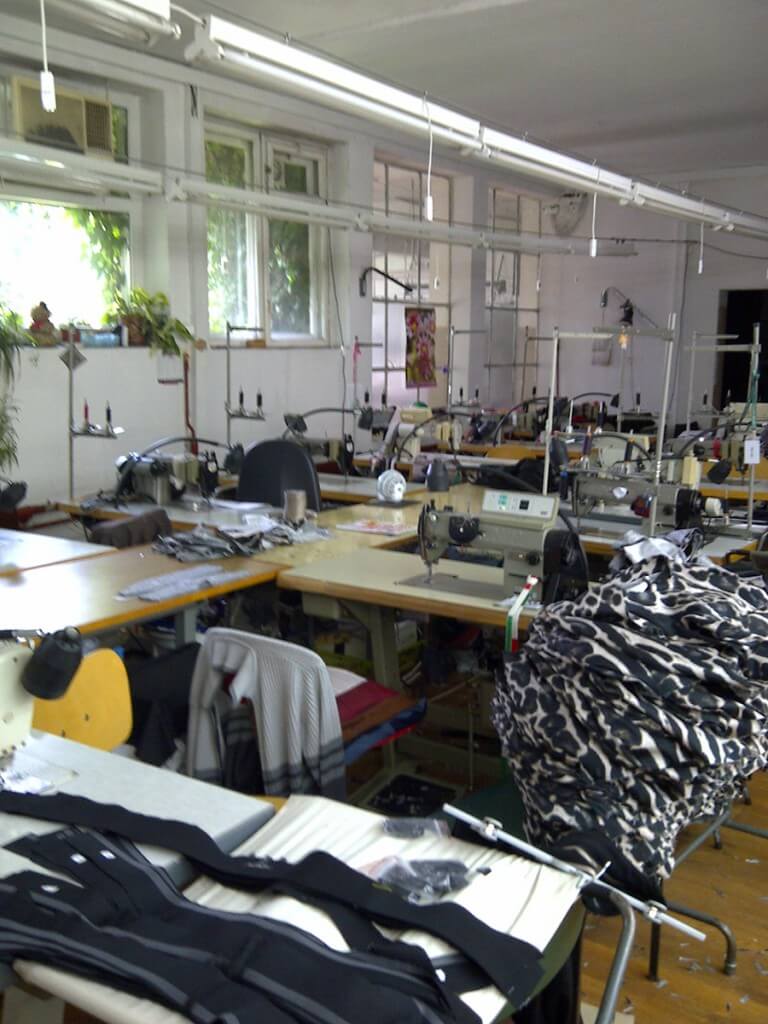
Many British brands rely on manufacturing opportunities within the EU. The prices are lower and workforce skill often higher than what can be found in the UK. It also shortens the supply chain and makes ensuring ethical production easier. In the photo is a small scale factory that I used in Poland for my brand in 2013. Photo by Karolina Laskowska
What I fear most is the effect that it will have on small businesses, particularly independent lingerie brands. Independent lingerie brands are irreplaceable in the industry.
They’re the people that drive fashion trends (to later be copied worldwide by larger corporations), and they’re the people that take risks and bring passion to clothing. In the independent fashion scene, it’s also much easier to track the supply chain and to ensure ethical manufacturing.
Having only recently emerged from a recession in the UK (which markedly caused the demise of numerous lingerie brands), many lingerie brands are already in a precarious position. Margins are incredibly tight and many British brands struggle to make a profit.
The British pound sterling value has fallen to its lowest in approximately 30 years. For many international customers, this favourable exchange rate has been deemed an excellent time to go shopping with their favourite UK retailers. For the UK businesses themselves, the consequences are much more dire.
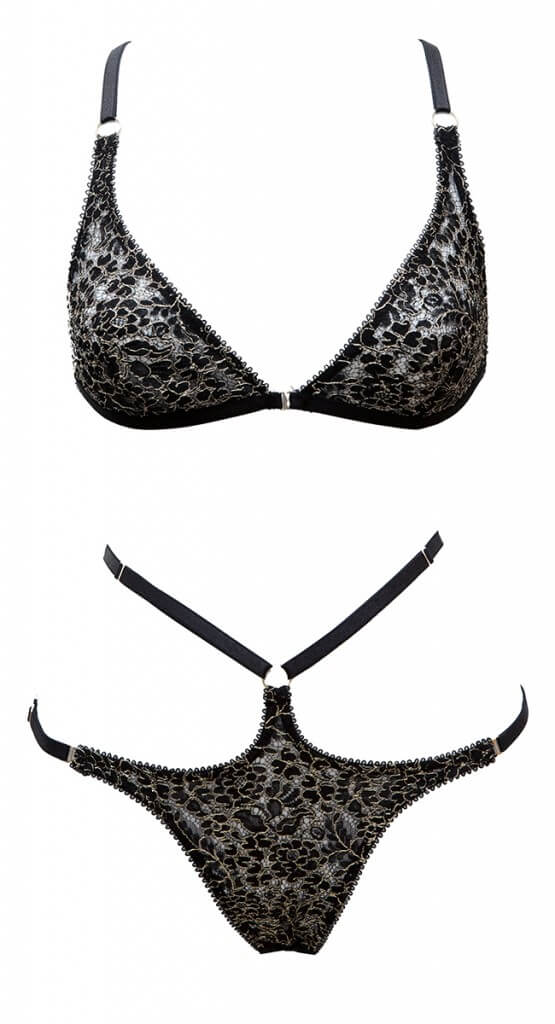
The Brexit could cause another major recession that would see consumers eschewing independent designers for lower cost options for their lingerie. For many brands this lack of business could be fatal. Design by Karolina Laskowska
Independent lingerie brands can’t compete with the prices of fast-fashion chain stores. A recession would mean tighter budgets for many customers, with many choosing to shop elsewhere as they cut down on luxuries such as lingerie. Businesses will inevitably close for lack of business.
The process of Britain leaving the EU is unlikely to be concluded for several years. One of the defining features of EU membership is that Britain has free access to the entire EU market.
From a lingerie brand’s perspective, this means that they can purchase supplies and use factories within mainland Europe without having to pay tariffs. Customers in mainland Europe can purchase from British lingerie brands without fear of their lingerie being hit with heavy customs taxes.

Although most metal lingerie components such as wires, rings and sliders are now made in China, many wholesalers with lower minimums tend to be based within the EU. I rely on French and Polish wholesalers of such components as they offer lower minimums than China and lower prices than I find in the UK. Photo by Karolina Laskowska
When Britain leaves the EU, it will have to renegotiate trade deals from a position of disadvantage. Many political figures have suggested that a best case scenario would be that the UK will be able to negotiate a similar agreement to that or Norway. Norway is not a member of the EU, but pays fees into the Union for access to the market and other perks.
Unfortunately, this is not a deal that would necessarily work for the fashion industry. Fabrics and clothing imported into Norway from within the EU still carry customs charges, textile tariffs and processing charges. A similar deal for the UK could see brands that rely on EU suppliers forced to increase their prices by around 30%.
Many UK lingerie brands rely on exporting their products in countries such as Australia and the USA. These are already countries that have to pay import duty on purchases from the UK. Brexit is extremely likely to force UK brands to increase their prices. This will only make cross-border shopping even more unattractive and unattainable: import duty on top of higher prices will force these goods out of many lingerie lovers' budgets.
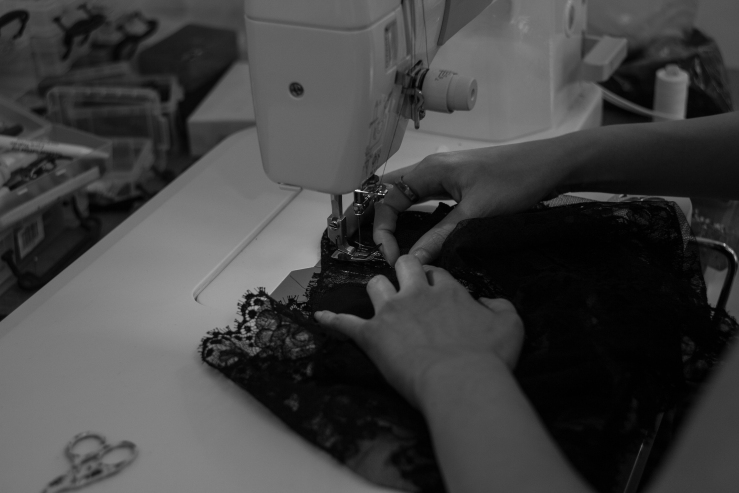
If Brexit limits British business' access to European factories, my brand may be forced to return to expensive and slow in-house production.
Photo by A. Lindseth
I am so very fearful for my own lingerie brand, ‘Karolina Laskowska’. I’ve been running the brand for around 4 years now. I used to sew every garment myself but recently took the steps into larger scale manufacturing (with an order of nearly 500 garments). I’m now left with the very real fear that I could be left unable to sell an unmanageable amount of stock. After a consistently good year, sales have almost dried up completely in the last month and I can’t help but wonder how much of this is down to the political climate.
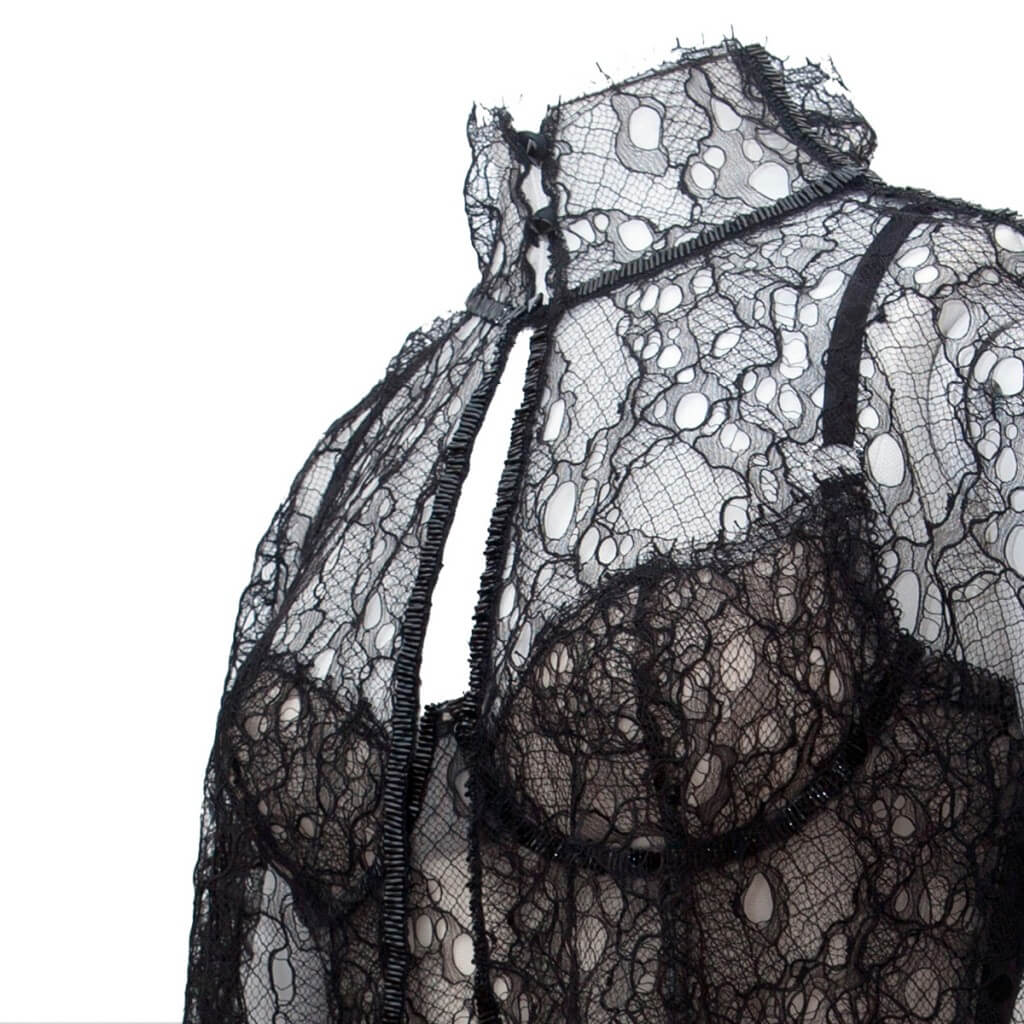
The 'Andromeda' set from my most recent collection uses French lace, German beads and thread, Austrian crystals and underwires sourced from Poland. For many independent and luxury brands in the UK, it is impossible not to source from the EU. Suppliers in other countries often have prohibitively high minimum orders and risk of import duty. Brexit could impose so many extra costs to British businesses that they face being forced out of business. Photo by Karolina Laskowska
There’s also a great deal of fear for the future. I source many of my materials from Europe, which will see inevitable price increases (both due to tariffs and damage to the pound sterling value). I cannot afford to use English factories, and I will be frozen out of using my Polish factory due to the tariffs that will be incurred. I will likely lose a large percentage of my customer base, as many are based in Europe.
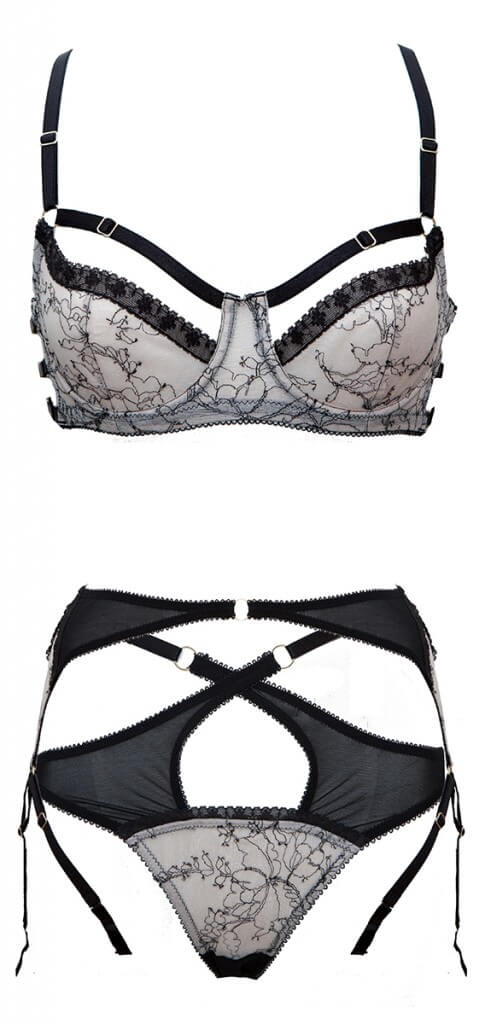
A design from one of my first large scale production runs. Brexit has left me with the fear that I will either not be able to sell all of it or that I will be frozen out of future relationships with factories.
Photo by Karolina Laskowska
I feel as though I’m left with two main choices: closing the business and seeking employment elsewhere or applying for dual citizenship and moving to the EU. Neither is ideal and will see a lot of upheaval. Giving up on my business feels like defeat after all of the hard graft and support that I’ve received over the years. Leaving my home country means saying goodbye to huge swathes of friends, family and support networks.
It’s a highly emotional time, but some of my close colleagues in the UK-based industry took the time to share their thoughts on the referendum result and potential consequences. Emma Parker of Playful Promises lingerie states the following:
‘I was very keen for the UK to stay in the EU. [With] regards to the lingerie business, my two main concerns were in terms of both tariffs being imposed on our goods and if the value of sterling remains too low for too long. Both of these things could push the price of goods up, reduce sales and lead to job losses.
However, I have decided that now Brexit is a reality to adapt to the situation and be Progressive Brexiter. I will be supporting whichever politician seems best suited to negotiating a trade deal that supports both our goods and services industries. I also look forward to us hopefully negotiating trade deals outside of the EU zone with the likes of the US and Australia for example (one of the main positives of leaving the EU is that it stopped the UK from entering into trade deals on its own with other nations and so now we will be able to do this hopefully!).
We have a lot of fans and customers in these geographical areas and it would boost business and be great for them if they could buy from us without having to pay import duties or [paying] reduced duties. I am hoping that a Progressive Brexit could, if managed correctly, actually grow the economy and lead to greater economic participation for everyone including those who felt angry enough at the current political status quo to say F*ck-you to it!’
The UK has become world renowned for its creative and skilled corset makers, as well as for its corsetry component suppliers. The Brexit threatens both of these business models. Jenni Hampshire of Sparklewren Corsetry fears that as such businesses often function on a shoestring budget, '...this is just another barrier, another set of challenges, that may convince plenty of creative businesses (who rely on Europe for both supplies and custom) that it isn't worth bothering'.
The British government is currently left in a difficult situation. The referendum was advisory, rather than legally binding, so they could technically choose not to proceed with a Brexit. This would inevitably lead to political and civil turmoil, yet it’s clear that proceeding will cause a wealth of irreversible damage. The coming months will be a difficult time indeed, and I for one am desperately hoping that the politicians make the unprecedented decision of remaining in the European Union.
Have you thought about how Brexit will affect your lingerie buying? Which side of the referendum did you support?
